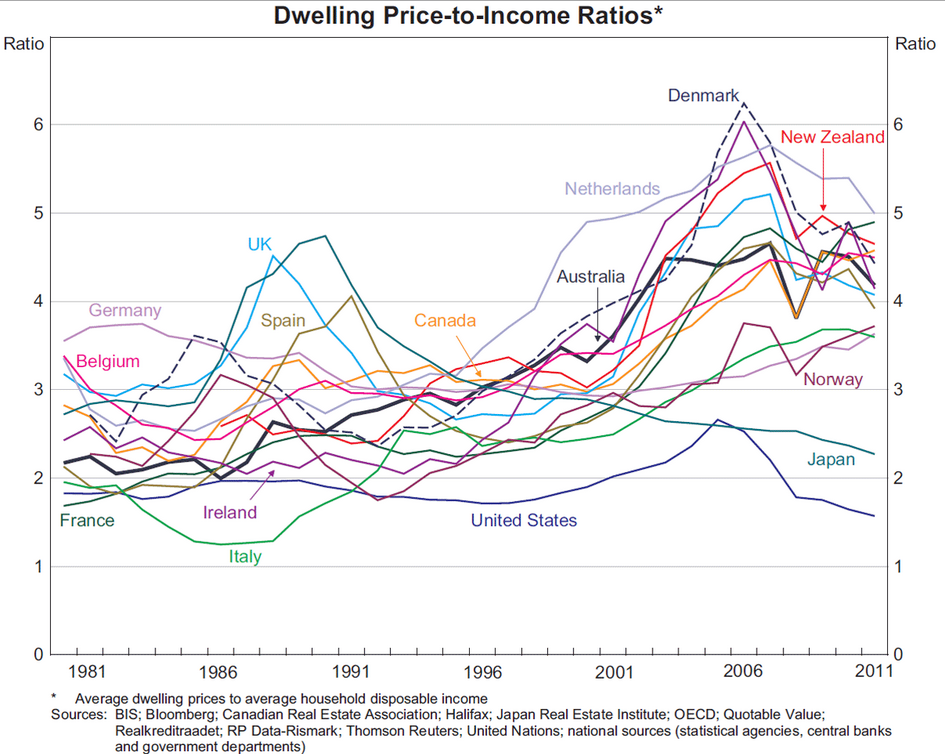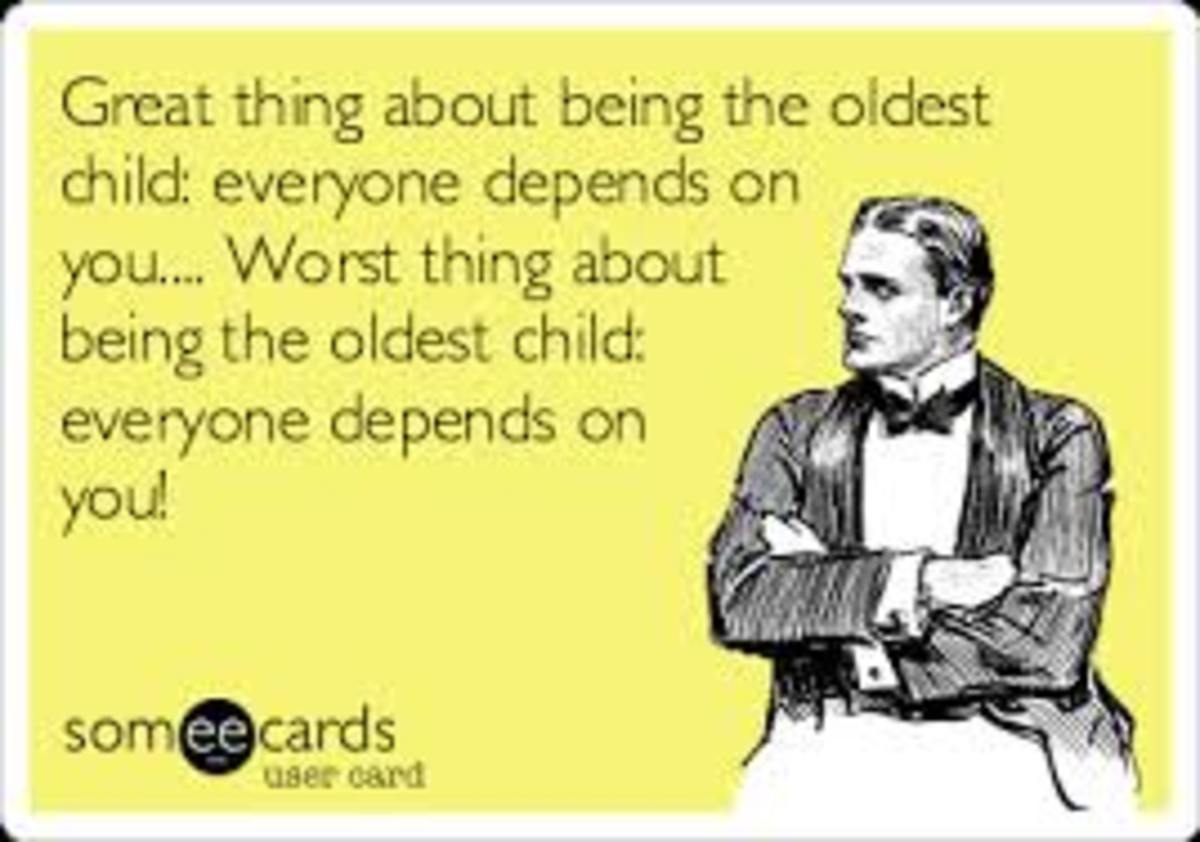What's the most controversial opinion you have?
Mine is that children shouldn't be disciplined by spanking/being hit - what's yours?
(1) I believe that if people are impoverished or poor, they shouldn't have children. Children brought up in poor or impoverished conditions have less opportunities culturally, educationally, intellectually, &/or socioeconomically. If one is poor & have children, h/she is condemning such children to a very dark, bleak future.
(2)I also believe that 1-2 children are enough for parents. 1-2 children are enough for parents to exercise a span of control without enlisting the aid of the oldest child to raise other children. Children need love & attention so 1-2 children are enough, any more than that, the percentage of parental attention lessen & children are left to their own devices to raise themselves, oftentimes w/disastrous results.
(3) Having large/very large families of 6-more children per household is abusive to children. Children in such families don't receive parental attention. They are also impoverished because there is little or no monies allocated per child. Children in such families go without, even the rudiments. Furthermore, large/very large families depend on OUTSIDE assistance to remain socioeconomically afloat. Also oldest children raise children, never the parents who keep pumping out children.Hello and welcome aboard. I may be an old timer, but I believe that there is a place for corporal punishment regarding wayward children. Some kids need stronger incentives to stay on the straight and narrow. And in this world, that is crucial. Every child is different and corporal punishment should be a last resort. As much as it pains a good parent, the ultimate importance of discipline can not be dismissed. There is a difference in giving a child a spanking verses being abusive.
Outside of that, I don't believe that I am terribly controversial in my beliefs.It used to be that having a roof above your head was a cheap thing and food was much more expensive.
I think that this would be a better situation. House prices, and rental prices should be only 5% of your monthly income. and Food should be more expensive, so farmers can ask a higher price for their produce. So you would spent more money on decent and healthy food, but you will have the money as you don't give it away to banks who ask high mortgages for high house prices.
And education (preschool, higher- university and advanced) should be cheap and accessible for every member of the society. Poor or rich and of any racial background.Hello peterstreep, I would say you certainly met the goal of the OP, that 5% number surely is controversial. Is it a serious number to you, or just illustrative of the concept?
While I agree with your education thoughts, I think your mortgage thought is off-base. Mortgage lending is a very competitive business, and their interest rates are pegged directly to the Fed rate - usually only a point, or three, over the Fed. (that is in the U.S. of course, and excluding the fringe of predictor lenders that are not the mainstream of mortgage lenders)
I see the high cost of housing as one thing, but mortgage rates as quite a different one.
GAThe 5% was just a number to make a statement,
If the housing price is lower, you will have less people having a mortgage. Or at least a mortgage that is acceptable.Have you gone so far as to decide which of the people producing your new home should get a wage decrease? Plumbers, electricians, framers, etc.?
Do you think building a house really cost 500.000+ on wages and materials? Only the first time perhaps, if you go wild on expenses. But if you buy a house that’s already build in the 80’s, all the plumbers, electricians etc are allready paid.
Do you pay as much for a second hand car as a new one. Off course not. So why should you with houses?Does a house cost a half million in wages and materials? Obviously not. Does it cost that much when a small profit and an enormous land cost is factored in, along with excessive utility fees to pay for expansion? Probably.
But if you don't like it, buy a smaller house or buy one somewhere with reasonable land costs. You can buy a mansion where I live for that.
But THAT is a good question - why does an older home cost as much as a new one.
And the only answer I can come up with is that is what people are willing to pay. If you can convince everyone that they are overpaying for older homes then the cost should fall. Might be tough to do, though.
You might consider foregoing anything listed with a realtor, buying only from owners - that's a savings of several percentage points right off the top. Of course, you won't be buying the services a realtor provides, either...Hello again peterstreep, the responses to your comment are no surprise, and that is probably because very few folks agree with your concept. I would think particularly so with your choice of home costs as an example.
You spoke of a resale cost of a 1980s home. If it were your home, and you paid $500,000 for it, and now you want to sell it, and you have to buy another home to live in - would you sell it for $200,000, (a depreciated value from the 1980s price), if there was a buyer offering you $500,000?
Of course if you were financially secure enough to make that altruistic $200,000 sale, it is a different matter, but if you are just a normal Joe, would you accept less than you could get for your home?
Considering that you will need to buy a replacement, would you sell something you value for the lower offer instead of the higher one?
GAThe question was about a controversial opinion.
I dont think it is realistic what I said but just imagine..
Yes of course 500.000 is quite a lot for a house. Lets make it $200.000 which is more realistic. Depending on where you live..
This is stll a lot of money if you are comming from uni. And have your first job.
My father who was a freelance photographer who didn't earn much could still buy a big familly house in the early eighties.
For me having the same income as my father had then can’t even think of buying a house like that.
I live great thanks to an inheritances but thats exeptional for my generation. And now starting families have even greater problems with buying a house.
I’m talking about Holland, but I know the sane situation happened in
Germany and England and the US too I guess.
Why are the houseprices so much higher then 40 years ago? Speculation is my answer.
And I think if you regulated speculation on houses, buying a house would be easier. And people who bought their house for 200.000 could still sell there house for a resenable price.
Its a complicated market I understand that but somewhere something went wrong In the housemarket business.
As for Wilderniss. Yes of course you dont need the bigest of the big. And you should buy what you can afford. Actually we sold our small flat in Amsterdam and bought from it a big house with a garden in Spain. The space we have here would have cost us a fortune in Holland, and impossible with our incomme. So yes, buying a house in a cheaper arrea is perhaps the most realistic option.Well peterstreep, I learned something due to your comment.
You say "Something went wrong with the housing market," but it seems there is another culprit - a global change - easier credit availability!
In checking your "1980s" reference point I found that from 1940 to 1980, housing costs increases were relatively coincident with earnings increase.
But ... after 1980 those comparisons became disparate. Housing costs increased more than earnings did.
I resisted falling back on the obvious answer to your first response; human nature and a capitalist system, aka, supply and demand. However, it turns out that seems to be exactly the answer.
It was in the mid to late 1980s that the credit market changed. Where once you had to be a high income earner to get a credit card, now almost anyone could get a credit card. Banks were mailing them out blindly, with very loose credit-worthiness standards.
Along with the loosening of the credit card credit market, the bank lending market, (which includes mortgage lending), also loosened. Which means that now more folks could qualify for a mortgage than pre-1980 folks.
Ipso-facto, and Bingo! There you have it. More people able to get credit for a mortgage means more demand for houses. And of course more demand - from a limited market, means higher prices.
There is what went wrong with the housing market. Easy credit and a limited supply. No nefarious scoundrels anywhere, just the reality of human nature.
GAYour reasoning sounds valid GA Anderson, although it doesn't make the situation better.
I googled a bit about house prices vs income and you're right that the house prices vs income in the US didn't change much. But in the Netherlands it more or less doubled. I guess we have to look at countries individually. As it is indeed always supply and demand. And Holland is a small place and there are living now 17 million people instead of the 14 mil. in the 80's.
But that's not the only reason. The prices started to rise from '96 onwards with a steeper rate then the rise of the population. So something else was happening. The Euro was introduced in 1999 which did not have a huge effect, although some.
In Holland you don't get easy credit though, the banks are pretty tight, even before the wolrdwide crisis. Which means if you don't have a lot of capital to start with and a regular job it's going to be tough. Luckily a lot of people in Holland don't mind renting a house instead of buying.
I'm not really into this stuff although it's interesting to see how things develop. So I don't have the answer, but I stay with my first post to make housing cheaper and food more expensive. How? I do not know, but I don't think it's a bad idea to change the spending behavior. Pay more for your beef and less for your roof. (it's just a different way at looking at the economy.)
I can't speak for Holland, of course, but I DID look at housing prices in the 60's vs today for the US.
And found that it took very close to the same number of hours worked (for the average earner) then as it does now...to buy the same square footage home. Of course houses have increased in size considerably, and houses now come with far more in the way of amenities such as air conditioning, water softeners, bigger and better appliances, etc. It's tough comparing then to now because of the differences in what is being purchased, but the cost per square foot, in terms of hours worked to buy it, have remained about the same.You're right about the US. Apparently you have to look at each country differently. And as you say, it's tricky to compare then and now. As in general the living standard is better then 40 years ago.
You easily fall into the trap of nostalgia."You easily fall into the trap of nostalgia."
Isn't that the truth! The "good old days" mellow, somehow, in our memory and become something they never were.
(1) People from large/very large families tend to be perfunctory parents. They don't believe in teaching their children. They let their children raise themselves as they have been raised. They are also abusive parents who use harsher forms of discipline. They aren't the most loving parents to their children.
(2) People from small families are loving, involved parents. They are involved in their children's lives. They spend individualized time w/their children. They teach their children. They use more constructive forms of discipline.
(3) People from large/very large families aren't into education & achievement. They are happy living in scarcity & poverty. People from large/ very large families don't see life beyond the rudiments. They also aren't attuned to cultural & intellectual activities, seeing such activities as beyond their scope. The large/very large family culture is one of struggle, harshness, & poverty. People from large/very large families GLORIFY, even DEIFY poverty & teach their children to do THE SAME!(1) Oldest children are expected to be little adults. Any expression of being a child is strongly discourage, even denigrated by parents. Oldest children are treated the most disparagingly by parents. They are always given the proverbial shaft by parents. They are expected to be perfect at all times & woe to them if they...……..AREN'T.
(2) Middle children are all but ignored by parents. They aren't considered important in the familial consternation at all. They must constantly fight to find their place in the family. They must learn to navigate the environment early or they will fall through the cracks.
(3) Youngest children have IT MADE. They are family favorites the majority of the time. They have the longest childhoods & adolescents. They have no responsibilities whatsoever. Everything is smooth sailing for them. They are glorified, even worshipped by their parents who make the older siblings do the same.
(4) Oldest children RESENT their younger siblings because they had it THE HARDEST of all birth orders. Oldest children must be adults as soon as they are cognizant. They don't have normal childhoods &/or adolescence.I see you are still living in your fantasy world,and making random stuff up. It's always good for a laugh
Read some books on birth order & observe oldest, middle, & youngest children. Oldest children have it THE HARDEST. I KNOW MANY OLDEST CHILDREN WHO STATED THIS! There are oldest children among family members, cousins, friends, you name it. Wouldn't want to be the oldest child for anything!
Oldest children are cast aside unless they are pressed into serving parents & younger siblings. Oldest children are usable objects in their families. They are deemed purposeful/usable then cast aside when no longer needed. That is life for oldest children in families. Oldest children aren't loved nor respected by their parents who feel that the former don't need them. Parents also believe that oldest children don't need them at all; besides there are younger children to care for & love.
(1) DON'T have children until one is prepared educationally, emotionally, financially, intellectually, & psychologically. There are FAR too many people having children willy nilly without being prepared educationally, emotionally, financially, intellectually, & psychologically.
(2) DON'T have UNWANTED children. Children who are unwanted are emotional, financial, & psychological drains on families. Such children are scapegoated & abused. Many are throwaway children. Have children that you WANT & PLAN for.
- ahorsebackposted 7 years ago
0
The High cost of housing is most evident in the fact that no one begins with what used to be called a "starter home"anymore . Once upon a time in America we purchased that which we could afford for a first home , Or we built one or rebuilt one thereby affording a home with "sweat equity ".
Today ? One more entitlement from uncle sam is what everyone wants , It doesn't "fall far" from a guaranteed minimum income , free healthcare , Free higher education , etc.............
Wan't an affordable home , get to work and find a way like we all did in the beginning . - ahorsebackposted 7 years ago
0
Up until the last generation or so , If one could not find a job you moved to an area where there was more work . If that was in a new area ,so be it . If one couldn't make a living to support one's chosen standard of living , one would work two jobs , If you couldn't afford the cost of a first home , you chose to build your own or buy that "starter home" , Today the life choice is the demand of "starting at the top " with all that one ever wanted , and then to demand the income to support it . To demand "the benefits that I deserve ".
- ahorsebackposted 7 years ago
0
First of all , Anyone that pays $ 500,000 for a house today should not be complaining about low paying jobs , interest rates , working two jobs or for that matter , the very cost of living .
In many ,many parts of America $500,000 is a rich man's home , if one decides they must buy the half a million dollar home FOR the supporting of a regional job that's one thing yet even then their are many options .
In r.ural America , A nice first time buyer , starter or retirement home can be had for far far less . Older homes hold and increase in values BECAUSE of other factors , location being number one , real estate market promotions for another , antiquities values for still another . I recently bought a small cape style home built in 1805 for $ 130,000 in a small retirement town in rural New England . So do not get locked into high, fast growth markets for the sake of a high paying job . Usually job markets today change so quickly that a thirty year fixed is not worth investing in . (1) Poor people in the United States have to cease having a poverty & dependency mindset. They must stop behavior & mannerisms which keeps them from advancing into middle classes. They have to become more pro-active & less fatalistic regarding their affairs. They must realize that no one is going to help them but themselves.
(2) Religions advocate poverty & impoverishment as a means to control & indoctrinate the masses. Religious leaders love poverty because it gives them control. Many missionaries purposely keep people in poverty because the latter will look to the missionaries & other religious authorities as parental figures. However, these missionaries & other religious authorities don't care about advancing the economic status of their subjects because if they do, the subjects would no longer need them so they indoctrinate these subjects into poverty thinking & acting by keeping them impoverished, even in penury.Favoritism is a fact of life whether it is in families, schools, & the word of work. Most people practice favoritism. Parents are the first people who practice favoritism. There is always one child who is liked/treated better than the other children in the family. The practice then appears in the educational system. Teachers, like parents, practice favoritism. There are children in the educational system who are treated more preferentially than others.
As we all know, the corporate world abounds in favoritism. Favorite people get the best jobs & fast tracks to promotion. If the boss &/or the POWERS THAT BE like you, the work world will go smoothly. Likability determines choice jobs & promotions, not so much as educational qualifications & skill level. If a person isn't liked, no matter his/her educational qualifications nor skill level, h/she will have it DIFFICULT at work. Favoritism is a fabric of life which is rife in families, schools, & work whether one wishes to acknowledge it or not.you can't possibly think ALL large families have abusive parents/ dont care about education that's ridiculous
These things are typical in large families. Large families are socioeconomically poor to impoverished for the most part. There are hardly any socioeconomically affluent large families. Large families are the purview of the poor & less educated, even uneducated. Let me not digress.
In large families, the environment is very precarious. Struggle is normative. So is doing without, even the rudiments. Because of the precarious socioeconomic conditions prevalent in the large family environment, tensions run high. The husband/father is overburdened because he is oftentimes THE SOLE support of a growing family.
Besides socioeconomic resources being strained, emotional resources are being strained because parents can devote so much time to each child. More EXTREME childrearing methods occur in large families. Parents are either very authoritarian or completely lackadaisical in their rearing methodology, leaving all the rearing to the older children who are just children themselves. Also, the more EXTREME rearing methods include harsh corrective actions such as CORPORAL punishments. In large families, beatings & other physical punishments are common as parents don't have the time nor resources to use constructive discipline such as discussions & time outs for their children.
Children in large families aren't exposed to cultural & intellectual activities as these things cost monies which large families DON'T have. Children in large families are oftentimes bereft of culture. Since their parents don't interact w/them except on a minimal basis, such children are feral i.e. they have to raise themselves & each other. In typical large family households, there are no books nor other forms of intellectual stimulation as intellectual prowess aren't emphasized in large family households. It is primitive, basic levels of survival & nothing beyond that in large family households.
Of course, education, success, & attainment aren't mentioned in large family households. It is just survive & get a job. Education is seen as unnecessary in large families because the name of the game is work to supplement meager family income so it is a rarity for children in large families to complete secondary school. They have to drop out of school to supplement family income thus another generational cycle of poverty continues. If anyone is going to be educated, it is oftentimes YOUNGEST children. Youngest children in large families have opportunities for education & advancement which older children DON'T. I have studied large families & observe firsthand through extended family members & friends what hellish lives children in large families HAVE. Wouldn't wish large families on the devil!
Related Discussions
- 23
Do you believe that poorer and/or less educated people have more children whom t
by H C Palting 7 years ago
Do you believe that poorer and/or less educated people have more children whom they can't support?Do you know any ill effects to the child(ren) born to these families and society? If so, what are they?
- 4
To those from small families, have YOU noticed that people from large/very large
by Grace Marguerite Williams 9 years ago
To those from small families, have YOU noticed that people from large/very large familieshave an ANIMOSITY against you because as a child, you had a lifestyle & myriad opportunities that people who came from large/very large families NEVER had as children, having to raise/support themselves...
- 6
What makes children from large families disliked & unpopular in school, even be
by Grace Marguerite Williams 9 years ago
What makes children from large families disliked & unpopular in school, even being school outcasts & pariahs? In school, children from large families are looked down upon by other students, even teachers. They are viewed as disadvantaged, even backwards. They are often...
- 16
Who play a vital role in the up-bringing of the child,the Mother or Father?
by Folorunsho Joshua 7 years ago
Who play a vital role in the up-bringing of the child,the Mother or Father?
- 23
Should there be a limit to the amount of children one family should have in the
by Rodric Anthony Johnson 12 years ago
Should there be a limit to the amount of children one family should have in the US?We know in some countries like China the government tells people the amount of children to have. Should we look into that for America?
- 45
What is the root cause of poverty in the world?
by Christian L Perry 7 years ago
What is the root cause of poverty in the world?














